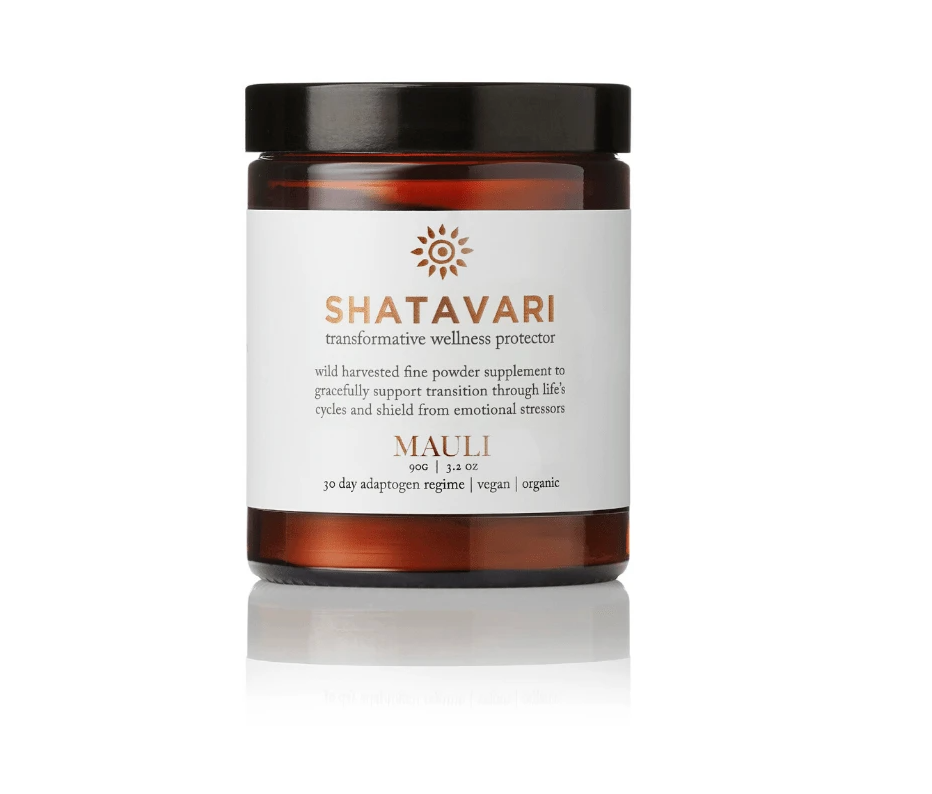Until the early 20th century the word ‘hormone’ simply did not exist. What did exist was Ayurveda – a 5,000-year-old healing science that advocated a simple yet profound approach to living a healthy, balanced life. The Ayurvedic approach differs greatly from Western medicine, in that it aims to prevent, as opposed to cure disease at every age and stage of life. The aim is to have true health of:
Ayurveda views the menopause as time of grace and power, as women transition from having an established career, perhaps having had children and reared a family, to now celebrating their wisdom and ability to truly know what they want from the next glorious phase.

Symptoms of Menopause
Given the menopause is a natural part of a women’s life, one would hope the symptoms would be manageable, but if life has not been lived in balance or underlying health issues have not been dealt with, we cannot erase symptoms instantly. What we can do is greatly bolster any other HTR therapies or otherwise through Ayurvedic practices designed to bring greater ease and harmony including Ayurvedic adaptogens such as shatavari, known to help balance the hormones through menopause. You can explore Mauli's range of 30 day adaptogen regimes here. As with all things, one needs patience to see incremental changes and benefits to mind, body and soul. This calls for a multi-layered approach focusing on all aspects of being including diet, herbs, yoga, meditation, breathwork and ideally it begins with some form of panchakarma.
Before we look at how best to support with Ayurveda during the menopause, let’s look at the typical imbalances that might manifest as oestrogen levels drop. Some of us will experience hot flushes, loss of libido, vaginal dryness, mind fog, inability to concentrate, mood swings, anxiety, sadness, anger, panic attacks, palpitations, headaches, bloating, weight gain, change in body odour, difficulty sleeping, night sweats, joint pain, thinning hair, dry skin and brittle nails and bones. Sounds pretty grim, but don’t let this get you down. Firstly, don’t buy into the idea that you’ll have all these and secondly, we’re all different. For some it could be debilitating and for others it may be a phase that comes and goes with ease. No matter where you fall in the spectrum and even if HTR is proving hugely helpful, which it absolutely does for countless women, to supplement with daily Ayurveda practices and supplements can only be a good thing.
Menopause in Ayurveda
Firstly, let’s understand this phase in terms of your constitution. In Ayurveda, we see individuals as being made of and governed by nature. Some of us will have more of an earth energy/quality, which is grounded, nourishing, kind and compassionate – these types of people are called ‘kapha’ dosha and this phase is one we typically associate with childhood. We recommend adding organic ashwaghanda to supplement your diet if you are a kapha type.
Some of us will have more of a fire energy and this is sharp, penetrating, focused, strong and is seen as ‘pitta’ dosha and a phase typically associated with adulthood, when we are driven to build strong foundations for our future. We recommend adding organic shatavari to supplement your diet if you are a pitta type.
Finally, we enter the energy of air – changeable, dry, fast and creative and this is seen as the ‘vata’ phase and is typically the point we enter menopause. So, while we may predominately be any of the above constitutions, the menopause will see the typical symptoms of vata dryness and pitta heat imbalances heightened. We recommend adding organic triphala to supplement your diet if you are a vata type.
How to manage menopause with Ayurveda
Here is a step by step guide to supporting your through the menopause.
1. Adopt a daily Dinacharya ritual
Those with a Vata imbalance tend to find it difficult to concentrate and find flow and that’s all the more reason to build in a daily routine. This means to wake and give gratitude, drink warm water with lemon, meditate and do a daily restorative yoga practice.
2. Up Your Oil Game
The use of oil is one of the most vital and transformative parts of living an Ayurvedic lifestyle. Indeed, the Sanskrit word of oil and for loving kindness is ‘snehana’ as these are seen as one in the same thing. A transformative part of managing the menopause is to combat dryness by nourishing the body and lubricating the internal organs.
- Daily abhyanga – our Mauli Massage Oils have been formulated for this daily self-massage ritual that helps emotionally ground and calm ‘vata’ energies and pacify the outbursts that come from pitta imbalances. Also, the act of lubricating the internal organs leads to stronger, healthier bones, hair, memory and greater movement of toxins through the body. If you’re feeling particularly anxious, try our Surrender Vata balancing oil and for inflamed joints, skin and for emotional outbursts opt for the Serenity Pitta balancing massage oil. Work in long strokes on the limbs and in circular strokes on the joints moving up and in towards the heart. Another extremely helpful method is to use out Tension Release Massage Dome as it draws out heat and acidity from the body. If you don’t have much time, even 15 minutes is wonderful and if you’ve even less time, opt for massaging your head and the healing reflexes of your feet.
- Daily oil pulling with cold pressed sesame or coconut oil every morning. This helps to draw toxins out of the mouth, which in turn helps prevent gum disease, boost immunity and reduce inflammation. What you find in menopause is that lower levels of oestrogen cause our taste buds to weaken, which in turn causes cravings, and so the cycle of decay begins. Ideally one would do oil pulling for 15-20 minutes but if that’s asking too much, try for even five – you’ll really feel the benefits.
- Nasal oil – place a few drops of oil into each nostril and tilt the head so that it stays put. You could even use a little ghee. Take a deep breath and gently massage the outside of the nose. The nasal passage is our direct connection to the brain, eyes and throat. When the nasal passage filled with pollution, allergens and toxins, these are carried to the brain and digestive system, thereby moving through all parts of the body. This simple act helps to keep eyes clearer and stronger, keep the brain sharper and the system cleaner.
- Ear drops - known as karna puruna; ear oiling is traditionally done to combat Vata imbalances such as tinnitus, itching, neck and jaw tension and headaches. This simple ritual soothes, warms and nourishes the ears and beyond, as all things are connected. Do this at night when you can place a few drops of oil into one ear while lying to one side. Wait a good 5 minutes for the warm oil to absorb. Almond oil is a good choice.
3. Just Breathe
Pranayama or alternate nostril breathing is hugely beneficial and is calms an over active mind and strengthens the immune system.
4. Fewer, Better Things
Vata is aggravated in menopause and this heightens mind fog, anxiety, an inability to concentrate and feel calm. All the more reason to rest and be kind to yourself. Vata is always on the go, wanting to create and do, but give yourself a chance to just be. Opt for Pilates, yoga, swimming, walking and strength training to keep bones strong and the mind focused.
5. Healing Herbs
Now is the time to opt for natures finest adaptogens. As the name suggests, Adaptogens adapt to whatever the body needs, by reducing both physical and emotional stress..
One of the main herbs practitioners prescribe for balancing hormones is shatavari. This is a great adaptogen for women to help gracefully support hormonal cycles – to nourish, boost energy and shield from emotional stressors. High in antioxidants - naturally cooling and nourishing to the reproductive organs, shatavari eases symptoms of heart burn, IBS, POCS, hot flushes, mood swings, feelings of sadness and diminishes the heat and dryness typical of menopause, which in turn helps boost libido.
Ashwaghanda is an excellent brain tonic, that helps with anxiety and also aids a restful sleep.
For constipation take triphala.
6. Food As Medicine
A time of vata imbalance is when we may want to eat too much or not at all, and we may feel bloated and constipated.
- Eat warm, cooked, soft foods, heavy, oily and use ghee to nourish.
- Stay away from spicy, boiling foods as this will aggravate the pitta dosha.
- If you do feel like you’re longing for a raw salad, do add an oily dressing to it.
- Add fennel seeds to your warm water.
- Use cardamom, cinnamon, saffron and black pepper to meals.
- Right now opt for foods that are sweet, sour and salty but not processed – instead we mean rice, vegetables, fruits and organic dairy, ghee, coconut oil, salmon, as opposed to honey, sugar and barley.
- Less caffeine and fizzy drinks.
- Less cold, dry, hard food such as bread, crackers, crisps
7. Sleep Well
Sleep at 10.00pm and aim to be up at 6.00pm. Read our tips on the Ayurvedic art of sleep with bedtime rituals you can adopt today. Make sure to try our Sleep Dharma Pillow Mist to help you effortlessly ease into a deep sleep.
Finally, appreciate who you and exactly where you are on your journey. It’s all perfect.






